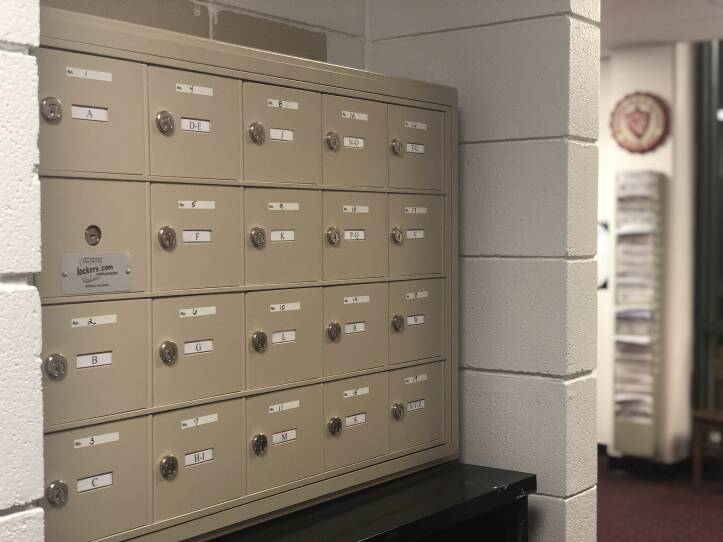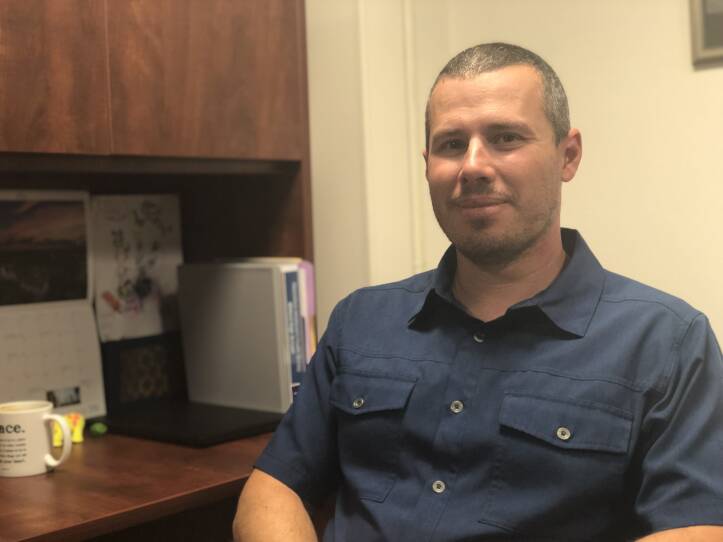In the fall of 2018, Milford High School Principal Joshua Otlin heard that teachers were losing the war against cellphones.
"They had essentially surrendered," he said. "They decided that they weren't going to be the phone police every day. They weren't going to bargain and negotiate and beg and plead and punish. They were going to teach."
Otlin said he'd visit classrooms and see up to 15 kids take out phones at some point during class.
"You've got a quarter, a third, a half of the kids kind of mentally checked out," he said.
So, last April, Milford High started a new policy. If a student gets caught using a phone in class, they go to the principal’s office, a family member has to come pick up the device from a "phone locker" in the office and the student has to go to Saturday school.

"I've been an administrator for nine years," Otlin said. "I've never done anything that's made teachers happier than this."
Milford is one of many districts in the state sorting out its cellphone use policy. The state hasn’t offered guidance on cellphones, and the rules vary district by district, school by school and in some cases, classroom by classroom.
Brookline, for example, leaves cellphone policies up to each teacher. In Lowell, phones are allowed in the cafeteria during lunch, in hallways between class periods and in class for educational purposes if approved by a teacher. Boston requires its students to turn their phones off completely during the school day and keep them out of sight.
Merrie Najimy, president of the Massachusetts Teachers Association, said some districts incorporate phones into classroom learning in an effort to get students to see them more as tools and less as toys.
“Measures in place to restrict usage [are] not the only one-size-fits-all solution," she said. "It has to be a balance of really clear policies and expectations of when the phone should be restricted, as well as when they can be used in the classroom at the discretion of the educator.”
Najimy said attitudes toward technology in schools can also vary based on funding.
"When districts are underfunded and they don't have the same resources ... it's a constant struggle to keep up with the uses of technology in the classroom and have kids using devices in meaningful ways," she said.
Whether in or out of school, excessive technology use by teens is linked to consequences like psychological issues and attention problems.
But Dr. Angel Hoekstra, who teaches social psychology at Charles University in Prague, said she and other researchers studied college students in Colorado and found cellphone use in class also might impact performance — no matter how well students think they’re multitasking.
“It could be ... that some students who are more committed to the course or who are just less likely to use their phones in general tend to earn better grades than the ones who use their phones more," she said. "But what we were able to show is that students who indicated greater use earned on average about a half a letter grade lower final grade than the students who did not."
Other researchers have found similar links. One study on high school students in England found that test scores improved following all-out bans on phone use in school. The growth was most pronounced in students who had previously been underachieving.
Otlin said it’s too early to see if the new rules lead to a bump in academic achievement. But as far as he’s concerned, the change in policy has already been a success.
“I’ve heard colleagues say that the challenge they face now is that they’re having kids be chatty in class," he said. "That was a challenge that had kind of disappeared over the past five, six years. Kids weren't being chatty in class, because they were just buried in their devices.”

Otlin says the first two weeks of the new policy saw more phones getting locked up, but the offenses have tapered off. Now, his goal is to hold on to Milford’s new normal when school starts up again later this month.
"It's not an exaggeration to say that we do have students who suffer from what appears to be addiction disorders with their phones," Otlin said. "This idea that they're going to have to just suffer the logical consequences of their choices and we're not going to try to help them, I think, amounts to something like a dereliction of duty."
Our coverage of K-12 Education is made possible with support from the Nellie Mae Education Foundation.




